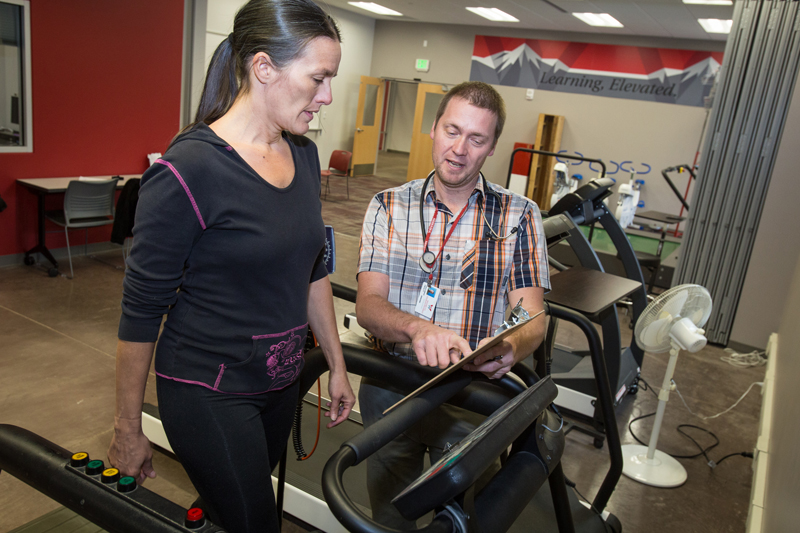
Western State Colorado University will offer a Master of Science in Exercise & Sports Science with a focus in High Altitude Exercise Physiology beginning Fall 2015. The new residential graduate program is Western’s latest addition to a rapidly growing array of graduate programs at the university and is Western’s first master of science offering.
The program is designed to examine and research how the human body functions in a high-elevation environment. Students will conduct research on people using Western’s new High Altitude Performance Laboratory and the surrounding mountains.
Western president Dr. Greg Salsbury says the new graduate program brings together much of what is great about a Western education.
“This exciting, new program takes advantage of Western’s state-of-the-art facilities, high-elevation location and tradition of launching successful careers in exercise physiology,” he says. “Furthermore, students will have the opportunity to conduct research side by side with some of the best professors in the field.”
The High Altitude Exercise Physiology program will be a full-residency program, following the traditional fall- and spring-semester academic calendar. During the first three semesters of the program, students will spend their time in the classroom, lab and field. During their last semester, students will spend the majority of their time conducting research.
Exercise & Sport Science professor and Recreation, Exercise and Sport Science Department Chair Dr. Kathleen Kinkema says few other programs in the country offer such a specialized combination of curriculum, laboratory facilities, and access to environmental extremes, such as high elevation terrain, for research.
“The new master’s program allows us to expand on a highly successful undergraduate program in exercise science, providing enhanced educational opportunities for students interested in a wide range of careers focused on promoting physical activity and enhancing performance among a wide range of individuals from elite athletes to clinical populations. We are excited that the program is residential, providing lots of opportunity for undergraduate and graduate students to work side-by- side. Our exercise physiology lab facilities for testing and research are second to none at the undergraduate and master’s level and our location at an elevation “sweet spot” should appeal to students interested in high altitude physiology research.”
Students in the program will work with a variety of elite athletes, recreational athletes, general exercisers and clinical populations (such as people with diabetes, cardiovascular disease, pulmonary disease, obesity, and/or cognitive and physical disabilities) under various conditions.
To complete the program, students must complete a total of 36 credits (including six thesis credits). Classes will include a common-core curriculum, as well as elective courses. Students will be expected
to complete coursework by the end of the fall semester of their second years. Their theses should be completed and defended by the end of the second semester of their second years. They will complete most coursework during the traditional academic year. The summers between their first and second years offer opportunities to complete practica, internships, independent study projects, pilot studies or research for their thesis proposals.
“This is yet another educational experience Western offers and no other university can match,” Salsbury says.
To learn more, please visit western.edu/haep.



